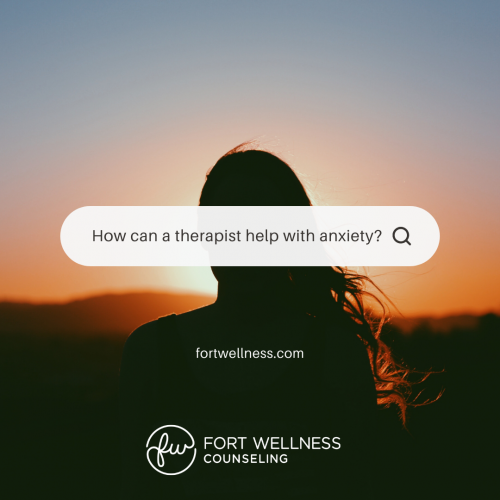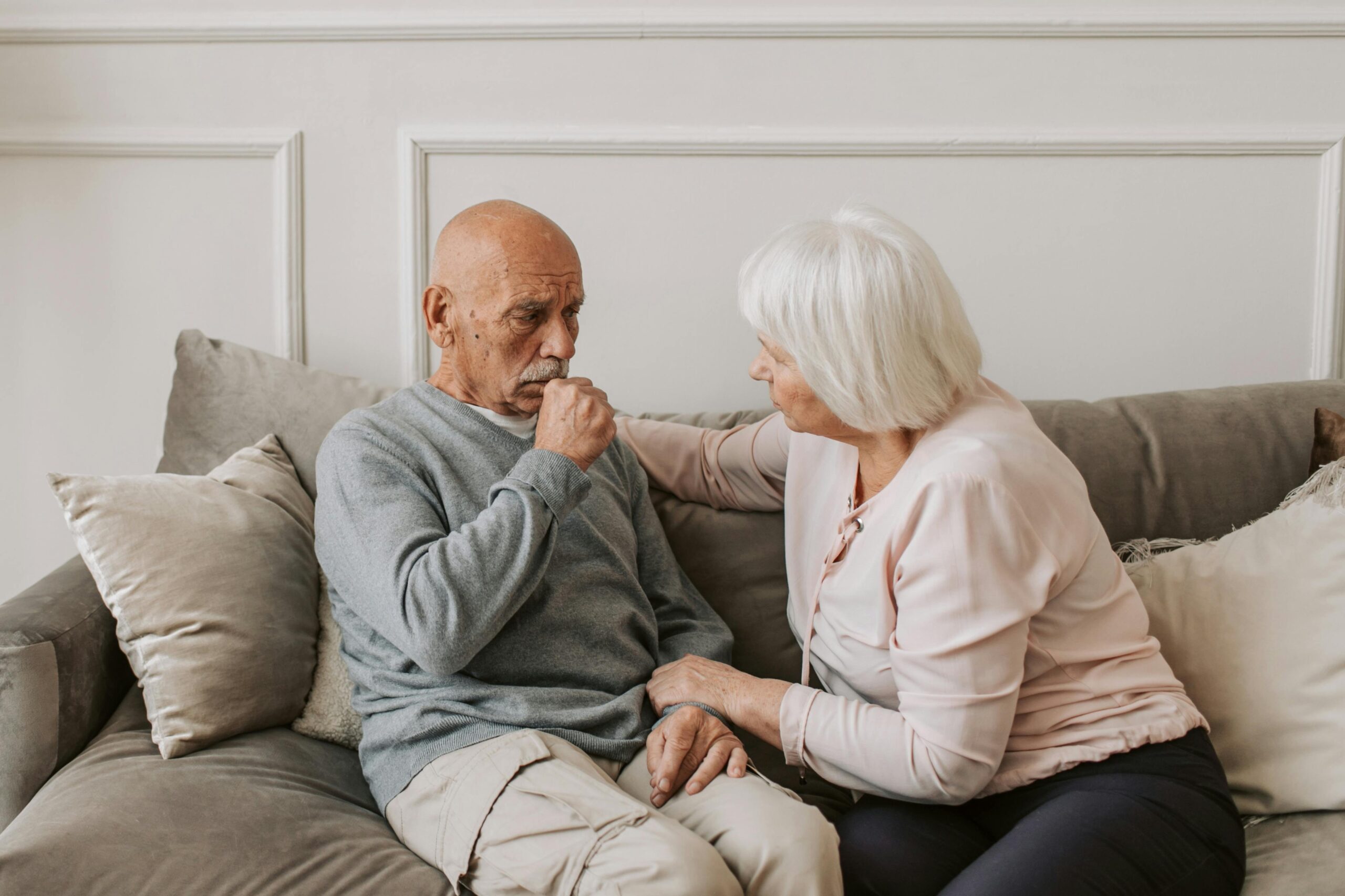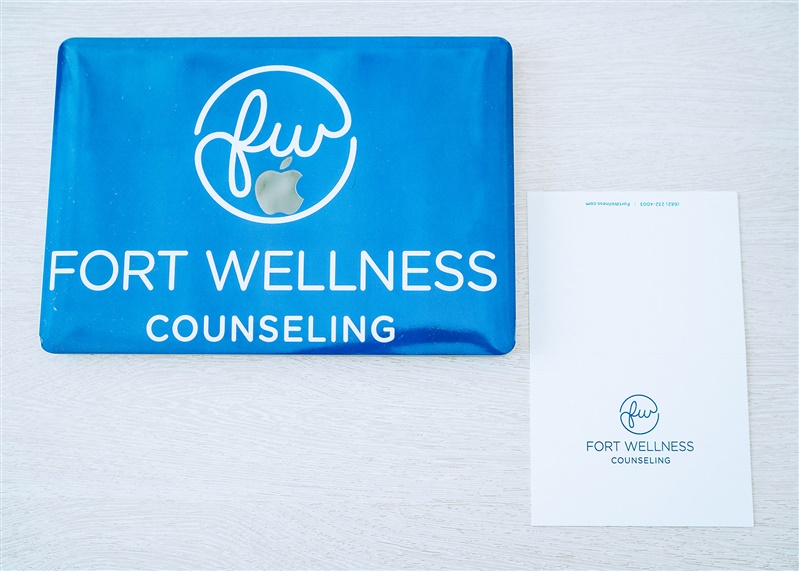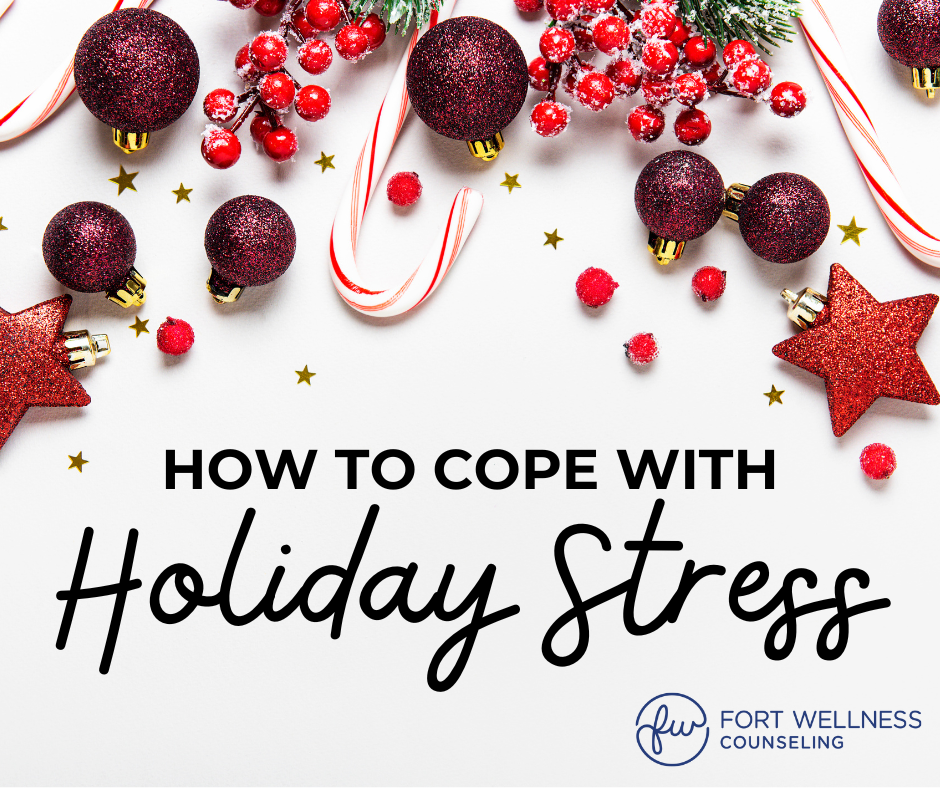
Offering Support After the Texas Hill Country Flooding
Offering Support After the Texas Hill Country Flooding By: Rane Wallace, MS, LPC, LCDC, SAP When tragedy strikes, it comes out of nowhere. And it

Anxiety and depression are two of the most common types of mental health disorder. Most people feel anxious from time to time. But for many people, anxiety becomes a constant presence that has a negative effect on their life. It limits their ability to do their best socially, at work, and in their relationships. The good news is that anxiety can be treated effectively by attending counseling and therapy with a professionally trained therapist. For instance, attending therapy can help you learn effective coping skills for stress management, coping skills for dealing with difficult times, and tips for how to work on problems related to FOMO.
Research shows that anxiety can influence up to 18% of adults and 25% of adolescents in America. That is a lot of people that are having to manage it and suffer from it daily. But what are anxiety disorders?
Anxiety disorders are mental health disorders that are characterized by the presence of persistent, intense, and disproportionate anxiety. It involves different physical and emotional symptoms, as well as changes in behaviors. People with anxiety tend to feel stress, worry excessively, feel fatigued, experience pains and aches in the body, and tend to limit where they go.
Anxiety will frequently lead to avoidance and a lack of enjoyment in many situations. For instance, social anxiety might lead the person to stay away from social situations they would like to engage with, like dates or parties. Next, I’ll talk about some of the common types of anxiety disorders.
There are different anxiety disorders that are all associated with a high level of worry but might manifest in different ways. Here are some of the most common anxiety disorders:
The person feels a persistent sense of anxiety that is not tied to one thing. Rather it is constantly present as a general sense that something bad will happen. That or worrying about different things that are out of proportion to those situations. You’ve heard the saying, “making a mountain out of a mole hill.” But this goes beyond just that.
Specific phobias are states of intense fear caused by certain situations or things. People can react with strong anxiety to needles or doctors, flying, being in crowded places, and many other things. For instance, spiders, snakes, airplanes, small places, etc.
Social anxiety refers to intense anxiety that is caused by specific or general social situations. It makes people worry about speaking in public, going out with friends, talking to strangers, and other social situations, which leads the people avoiding them even if they would like to socialize more.
Panic disorder is associated with panic attacks. Panic attacks are sudden experiences of intense anxiety with a pounding heart rate, shortness of breath, and other symptoms. In panic disorder, these attacks become frequent. Some people confuse a panic attack from and a stressful situation. Trust me, you’ll know the difference if you have experienced these!
There are other mental health disorders associated with anxiety, and people might experience more than one at the same time. The negative symptoms of anxiety are clear. People feel overwhelmed by negative emotions and tend to avoid situations that generate anxiety, even if it leads to them losing opportunities, hurting their relationships, or becoming isolated at home. Over time, avoidance leads to more anxiety. Even though in the short-term it might feel like a good solution. If you have experienced a panic attack, you can learn some ways for how to stop a panic attack.
What can be done about anxiety and stress management? Here is where a therapist can help. Anxiety disorders can be effectively treated through therapy, especially cognitive and behavioral approaches. CBT has a lot of interventions and anxiety coping skills.
Cognitive-behavioral therapy (CBT), for instance, and all the derived therapeutic approaches are evidence-based and target specific thoughts, beliefs, and behaviors related to anxiety. CBT and similar therapies are evidence-based, which means that they use proven methods and have a solid base of research that shows that it works for anxiety specifically.
With CBT, the therapist in this case will help the client recognize the thought patterns that lead to and contribute to anxiety symptoms. Other factors that contribute to this problem will also be examined to start a change. Therapists help patients in therapy to identify what is hurting them. From there, you can slowly shift and find alternative thinking and behavioral patterns to reduce the anxiety.
Therapy targets the cognitive elements of anxiety. This involves identifying the way thoughts contribute to emotions. For instance, people might worry about the worst-case scenario in all situations. Therapy can help address this. Instead of worrying and expecting things to turn out for the worst, the person can think of alternative scenarios and experience less fear. Therapy might work with underlying beliefs, like the idea that the world is an intrinsically dangerous place or that other people are not to be trusted.
Regarding the behavioral element, the therapist will help the person approach rather than avoid the situations that make them anxious. This will help reduce fear through gradual exposures and allow the person to go through the experiences that they might have avoided before. Slowly but surely, therapy can help you gain more control of your life.
Psychotherapy is a process that is collaborative and personalized. It does not involve forcing the individual into situations before they are ready. It also considers other skills and practice outside of the therapy room. CBT therapists often ask clients to work on their skills in their daily life to master them and employ them on a regular basis.
Anxiety is a common issue, and as a result, there are tested approaches that offer good results and can reduce anxiety. Research shows that therapy can be as good as treating anxiety with medication and can be combined with medication as well. In fact, coping skills are going to be a more viable long-term solution. Just think, “less pills and more skills.”
When should you attend therapy with a therapist? Many people find that anxiety is very disruptive to their daily lives. It keeps them from achieving their goals and having experiences that they want to have and limits their growth. Anxiety is exhausting and can contribute to many other issues, such as worsening physical and emotional health. The first reason to seek support is because anxiety has a real and measurable impact on how well we are and on our daily lives.
Some people can deal with their anxiety on their own. However, it is usually much easier to work through this issue with support and help from a trained professional. Therapists are trained to work with these issues and often have the right expertise to provide tailored solutions. Anxiety is as much of a problem as having a broken bone or an illness, and therapists have the knowledge to help work through the issue. Therapy can make the process of improvement easier, faster, and more effective. You can learn more about some of the benefits of therapy.
Counseling to help you manage stress and anxiety is an effective option. Anxiety is a problem that impacts so many different people. But it does not need to remain a chronic problem for anyone. There are available solutions. At Fort Wellness Counseling in Fort Worth, we provide individualized treatment and therapy services where you can gain the skills necessary to maintain change and achieve the results you are looking for.
Know that you want to attend therapy with a therapist, but don’t want to do it at Fort Wellness Counseling? No problem! Check out this informative article on how to find a great therapist in Fort Worth. If you are ready to start therapy, you can schedule easily using our online scheduling system. You can also contact us if you’d like to learn more about how we can help you!
At Fort Wellness Counseling, we strive to post informative, relevant, and engaging content on a regular basis. Please check us out and follow us on the social media platforms of your choice to stay up to date: Facebook, Instagram, and LinkedIn.

Offering Support After the Texas Hill Country Flooding By: Rane Wallace, MS, LPC, LCDC, SAP When tragedy strikes, it comes out of nowhere. And it

Family Vacations & Your Mental Peace: Strategies for Stress-Free Summer Travel By: Rane Wallace, MS, LPC, LCDC, SAP Of course, traveling with your family is

Mental Health 101: Debunking Common Myths By: Rane Wallace, MS, LPC, LCDC, SAP Every May, Mental Health Awareness Month raises awareness and advocacy for people

Medical Trauma: Understanding and Healing from Difficult Healthcare Experiences By: Rane Wallace, MS, LPC, LCDC, SAP Over the years, I’ve come to understand that for

Social Media Depression: Beyond FOMO to Algorithm-Induced Mood Change By: Rane Wallace, MS, LPC, LCDC, SAP I’ve seen this happen so many times with patients,

How to Wind Down at Night: Simple Sleep Hygiene Tips By: Rane Wallace, MS, LPC, LCDC, SAP Sleep hygiene might sound like a fancy term,

Pregnancy and Postpartum Anxiety Treatment in Fort Worth By: Rane Wallace, MS, LPC, LCDC, SAP Have you or a loved one experienced anxiety during pregnancy

Breaking the ‘New Year, New Me’ Mindset: A Guide to Sustainable Change By: Rane Wallace, MS, LPC, LCDC, SAP In my years as a therapist,

How to Support a Partner with Chronic Illness: A Mental Health Perspective By: Rane Wallace, MS, LPC, LCDC, SAP Living with a chronic illness can

EMDR for Attachment Issues: Building Healthy Relationships By: Rane Wallace, MS, LPC, LCDC, SAP When you hear “EMDR therapy” (Eye Movement Desensitization and Reprocessing), you

How to Deal with a Narcissistic Partner By: Rane Wallace, MS, LPC, LCDC, SAP Do you ever feel like your partner thinks they’re better than

How to Recover from Burnout By: Rane Wallace, MS, LPC, LCDC, SAP Burnout is a common struggle in today’s fast-paced world. Life’s relentless demands can

The Benefits of Attending Couples Counseling By: Rane Wallace, MS, LPC, LCDC, SAP There’s a misconception about couples counseling – that it signals the end

Things to Know About Individual Counseling in Fort Worth, TX By: Rane Wallace, MS, LPC, LCDC, SAP May is Mental Health Awareness Month, a good

Everything You Need to Know About EMDR Therapy By: Rane Wallace, MS, LPC, LCDC, SAP Have you heard about EMDR therapy and want to learn

What is Nature Therapy? (And Why You Should Be Doing It!) By: Rane Wallace, MS, LPC, LCDC, SAP Let’s face it: there’s just something about

The Benefits of Virtual Therapy in Texas By: Rane Wallace, MS, LPC, LCDC, SAP Technology is changing everything, and healthcare is no different! Thanks to

How to Get Over a Breakup By: Rane Wallace, MS, LPC, LCDC, SAP Breaking up with a romantic partner is painful – no matter the reason

How to Set New Year’s Resolutions By: Rane Wallace, MS, LPC, LCDC, SAP How to Set New Year’s Resolutions Setting goals gives us a sense

How to Cope with Holiday Stress By: Rane Wallace, MS, LPC, LCDC, SAP Say No to Prevent Burnout There are an abundance of obligations that

Trauma Therapy in Fort Worth: Types, Benefits & More By: Rane Wallace, MS, LPC, LCDC, SAP Believe it or not, an estimated 60% of men

How to Communicate Better in Relationships By: Rane Wallace, MS, LPC, LCDC, SAP Whether with coworkers or your significant other, the ability to communicate effectively

How to Prevent Seasonal Affective Disorder (SAD) By: Rane Wallace, MS, LPC, LCDC, SAP If you’re struggling with winter blues, know you’re not alone. SAD

What is a Functioning Alcoholic? By: Rane Wallace, MS, LPC, LCDC, SAP When someone is deemed a ‘high-functioning alcoholic,’ they’re able to carry out daily

How to Help Yourself – And Others – with Suicidal Ideation By: Rane Wallace, MS, LPC, LCDC, SAP September is Suicide Awareness Month. And while

32 Questions to Strengthen Your Relationship By: Rane Wallace, MS, LPC, LCDC, SAP When was the last time you had a meaningful conversation with your

The Fawn Response: How Trauma Can Lead to People Pleasing By: Rane Wallace, MS, LPC, LCDC, SAP Do you often find yourself putting the needs

How to Overcome ‘Hangxiety’ (Post-Drinking Anxiety) By: Rane Wallace, MS, LPC, LCDC, SAP Thought the consequences of drinking heavily were merely physical? Unfortunately, you’ll have

What is Box Breathing? Plus Tips for Beginners By: Rane Wallace, MS, LPC, LCDC, SAP Ever heard of box breathing? This popular relaxation technique involves

Do Mindfulness Exercises for Anxiety Work? By: Rane Wallace, MS, LPC, LCDC, SAP Do mindfulness exercises for anxiety work? If you (or people in your

What is Trauma Bonding? 4 Warning Signs By: Rane Wallace, MS, LPC, LCDC, SAP If you’ve ever been in an abusive relationship and felt bonded

Why Do We Cry? 4 Reasons and Crying Benefits By: Rane Wallace, MS, LPC, LCDC, SAP There’s no getting around it – crying is part

What Is Habit Stacking? (And How to Do It) By: Rane Wallace, MS, LPC, LCDC, SAP Supporting our mental health is one of those goals

5 Tips for Living with Someone with OCD By: Rane Wallace, MS, LPC, LCDC, SAP While living with OCD (obsessive-compulsive disorder) can be demanding, living

What is Assertive Communication? By: Rane Wallace, MS, LPC, LCDC, SAP So, what is assertive communication? Well, in a nutshell, this communication style aims to

PTSD Counseling in Fort Worth: Proven Coping Strategies By: Rane Wallace, MS, LPC, LCDC, SAP For those who didn’t already know, post-traumatic stress disorder (PTSD)

Brainspotting vs. EMDR: What’s the Difference? By: Rane Wallace, MS, LPC, LCDC, SAP According to the National Council for Mental Wellbeing, 70% of American adults

Mindfulness Exercises to Strengthen Your Recovery By: Rane Wallace, MS, LPC, LCDC, SAP Are you recovering from alcohol and/or substance abuse? Self-improvement is a life-long

How to Find a Counselor in Fort Worth By: Rane Wallace, MS, LPC, LCDC, SAP Are you considering therapy? If so, finding a counselor in

How To Not Be Codependent In A Relationship By: Rane Wallace, MS, LPC, LCDC, SAP Wondering how to not be codependent in a relationship? Sometimes

What is Parental Anxiety? Coping Tips from a Therapist By: Rane Wallace, MS, LPC, LCDC, SAP Every parent wants to shield their child from danger

What is EMDR Therapy? By: Rane Wallace, MS, LPC, LCDC, SAP Ever heard of eye movement desensitization and reprocessing therapy? More commonly known as EMDR,

8 Proven Tips to Sleep Better at Night (and Improve Your Mental Health) By: Rane Wallace, MS, LPC, LCDC, SAP Struggling with restless nights and

How to Have a Healthy Relationship with Social Media By: Rane Wallace, MS, LPC, LCDC, SAP In today’s world, there’s no escaping the presence of

What Is The Goal of Psychotherapy? By: Rane Wallace, MS, LPC, LCDC, SAP Have you been considering psychotherapy? The start of a new year is